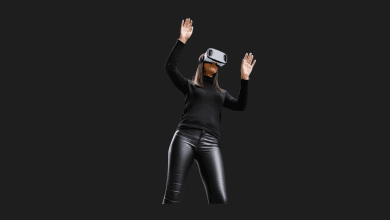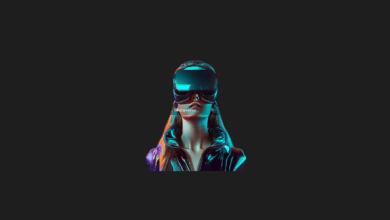Explore the Metaverse: 25 Essential Questions Answered
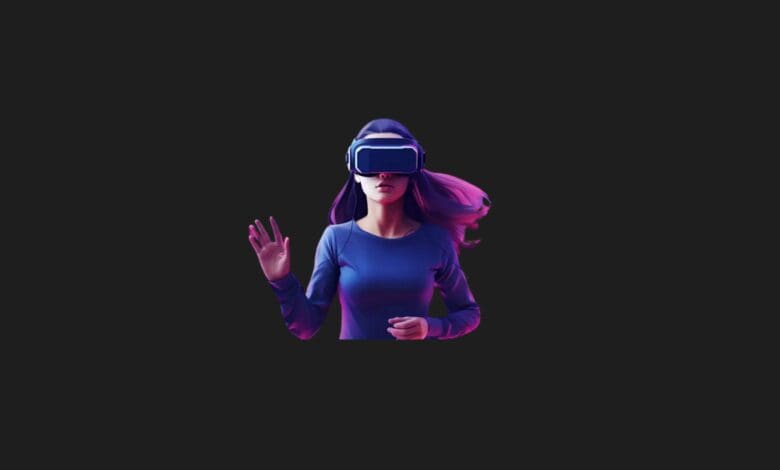
The metaverse, a term we’ve been hearing frequently since the second half of last year, is full of many unknowns. We’ve answered all the questions about this new universe that is set to impact many sectors—from education to art, and finance to retail—in the near future.
Towards the end of last year, when Facebook rebranded as Meta, it was as if the floodgates of a hidden dam were opened, and the entire world became flooded with news about the metaverse. At the beginning, and even now, debates around whether it would happen or not have been intense, leaving many of us confused about what the metaverse really is. The answers to questions like what exactly the metaverse is, what it will accomplish, and how it will change our lives remain unclear.
Despite the uncertainty, we didn’t hesitate to make virtual land investments. Even without fully understanding what these virtual plots represent, we scrambled to claim our dream plots in the prestigious districts of Istanbul or coastal holiday paradises. But is that all? Is the metaverse merely a virtual investment platform where we can buy land? Absolutely not. Let’s set aside the excitement around land and investment and explore what the metaverse is and what it can do.
A NEW WAY OF LIFE
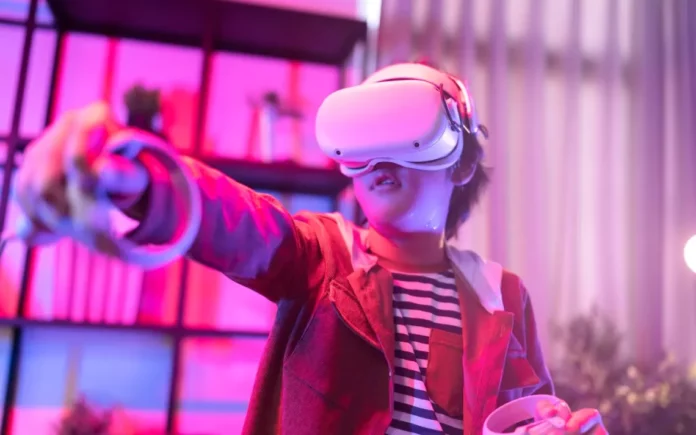
The metaverse, meaning “beyond,” was first introduced in Neal Stephenson’s science fiction novel Snow Crash, published in 1992 and translated into Turkish as Parasite. Although this futuristic world has remained on dusty shelves for some time, the rise of cryptocurrencies has brought the concept back into the spotlight.
In fact, it’s fair to say that virtual land sales have played a major role in this resurgence. However, the metaverse is not just a place where virtual land is bought and sold; it’s a way of life where all these elements are interconnected. Of course, you can purchase a plot of land there and build a store or even a neighborhood on it. We’ve even seen initiatives from both the public and private sectors in this space. For example, the General Directorate of Land Registry and Cadastre is preparing title deed information for the metaverse by 3D modeling Amasya, which has been selected as a pilot region.
When we look at the number of people investing in virtual land in this new universe, it becomes clear how timely this initiative is. In fact, Turkey ranks as the top country investing in the metaverse, having purchased over 20,000 parcels on a platform called OVR.
Retail brands are also taking notice of the metaverse. Major companies like Nike and Dolce & Gabbana have already established a presence on popular metaverse platforms such as Decentraland (MANA) and The Sandbox (SAND). Even İşbank has advertised within the game Roblox.
KEY POINT: NFT

The high demand for the metaverse brings with it new developments. One such initiative is the Metaverse Association, whose establishment was initiated last month by entrepreneur, businessman, and futurist Alphan Manas. The association, founded with the participation of 25 experts in their fields, aims to raise awareness about the metaverse in the USA. It seeks to guide those who want to develop applications or products on the blockchain and connect them with international business opportunities.
According to Manas, NFTs are key in the metaverse. After all, what will allow us to “live” in metaverse universes is not much different from real life. First, we need avatars to represent us in this new world. These avatars need to be dressed, equipped with accessories, and given ownership of items—just like in real life. Each of these is called NFTs (non-fungible tokens).
For example, in the game Roblox, a Gucci bag was valued at exactly $4,115, while in real life, the same bag was worth $3,400. Manas points to such examples to highlight that NFTs are valuable assets. Of course, it is also important to ensure the security of these assets. In the future, copyrights, major TV series, and movie projects could be protected as NFTs. However, Manas warns that quantum computers, which are slowly entering the conversation, are powerful enough to potentially pose a threat to these digital assets, making it easier to steal them. He emphasizes, “We need to consider what can be done about this.”
ALL YOUR QUESTIONS IN 25 QUESTIONS, THE SECRETS OF THE METAVERSE WORLD

1- What is the metaverse?
The metaverse can be described as a perceptual universe where people feel themselves fully immersed, both mentally and digitally, within a gamified version of the internet through their digital twins. It can either be a replica of the real world or a completely imagined universe. It’s a place where everything is possible, from gaming to education, and from entertainment to work. Experiences powered by extended reality (XR) and other technologies, such as artificial intelligence, blockchain, and human interfaces, are only limited by imagination. In short, the game has just begun…
2- How to enter the metaverse?
To enter the metaverse, the first step is to create a digital wallet. After securing the wallet, you must decide which platform to connect to and take action. If you plan to participate only as a user, it’s essential to learn about metadata security, how to securely use cryptocurrency wallets, and how to manage your time in the virtual space. However, if you intend to become a developer, you’ll need to understand DAO, NFTs, Token Economy, XR applications, 3D design, Voxel scaling, artificial intelligence algorithms, and AR Cloud infrastructure, alongside mastering metadata security and storage.
3- What equipment is needed for transverse investment?
To experience virtual games and home applications in the metaverse, you can opt for VR (Virtual Reality) or AR/XR (Augmented Reality/Extended Reality) glasses. Many games and applications also have desktop/laptop versions. Additionally, advanced pressure-sensitive treadmills and various wearable mobile AR applications are available. Smart glasses and mixed reality glasses (such as HoloLens, Real, and Magic Leap) are categorized as AR devices.
4- Once we transition to the metaverse, are there any limits to what we can do?
Companies that develop and export products can make use of XR technologies to enable remote customers to 3D examine products, visit factories via live video + AR, tour fields, meet with digital twins, and conduct trades using smart contracts. As you can see, there are no limits…
5- NFTs are a frequently discussed concept. What is their significance in the metaverse?
NFTs are crucial for the metaverse. From copyright protection to large-scale cinema and TV series projects, NFTs will be key. Although smart contracts are secure for now, quantum computers pose a significant threat to them. As quantum computing becomes more powerful, the current encryption will become vulnerable. In the metaverse, every design developed or displayed in 3D applications will be turned into NFTs, SNFTs, or iNFTs. The assets that will change hands in the metaverse are, in fact, NFTs.
6- What does the metaverse offer for those looking for investment opportunities?
The metaverse presents investment opportunities at a scale 100 times greater than what the internet has offered in the last 30 years. According to many economists, the metaverse market has a trillion-dollar potential. You can start a business, earn rental income, and even invest in NFT collections. Many companies have already begun selling NFTs, and virtual plots of land are awaiting new owners. The potential is clear and undeniable.
7- Does it make sense to buy land in the metaverse?
First of all, it’s important to warn potential investors that buying land in the metaverse is not the same as buying physical land. In the metaverse, there will be land and location-based ‘metas’. While many people may think they are purchasing a plot of land, what they are actually buying is an NFT. The value of this NFT will depend on the success of the companies that mint these digital assets. So, informed decisions are crucial when investing in virtual real estate.
8- What will our identity be in the metaverse?
We will have avatars that represent us. We will be able to customize these avatars by selecting physical traits such as hair color, eye color, height, and weight. In fact, anyone can create an avatar resembling their dream identity, even as a superhero. It will be a world where cosmetic surgeries are unnecessary.
9- Should we ensure the safety of our avatars?
Yes, avatars are essentially NFTs. These avatars, enhanced by artificial intelligence, algorithms, and deep learning, will be created by uploading personal information. The protection of these digital avatars must be ensured through the rules encoded into their algorithms, as they are the digital representations of individuals. Therefore, safeguarding them is essential.
10- How will data security be ensured?
We anticipate that smart contracts, autonomous systems, and AI-based systems will play a significant role in ensuring security. However, metadata security is one of the hottest topics being debated by cyber experts today, and there is still no definitive answer.
11- Is our infrastructure ready for the metaverse, both in terms of internet and hardware?
Currently, the speed of internet traffic is comparable to navigating through traffic in a major city like Istanbul—it’s slow and limited, especially with older infrastructures such as ADSL. Our existing infrastructure is not ready yet. However, this situation is akin to the chicken-and-egg paradox: both the infrastructure and systems will evolve and adapt to each other over time.
12- What needs to be done to prepare for the metaverse?
One key issue is high-speed internet access. Another challenge is the availability of VR hardware. Major companies that do not want to rely solely on telecom operators for communication speed have already started working on their own networks. SpaceX Starlink, META Aquila, and Google are developing solutions, such as the Loom balloon and even their own sim cards, to expand internet access.
13- How much time do we have before the metaverse becomes widespread?
Industrial companies have already started to take their first steps into the metaverse, using AR glasses for training and remote access. Likewise, gaming companies are actively developing many applications. However, widespread adoption among consumers will take longer. The pace of this technology’s adoption depends on both the companies investing in it and the infrastructure, such as Internet speed and processing power. By the time 6G internet is available, which is expected between 2025-2030, we anticipate a much broader reach for the metaverse.
14- Will the metaverse be accessible to everyone?
From an economic standpoint, certain segments of society may have no issues with metaverse access. However, technically, there will be challenges in terms of accessibility. VR cafes will likely become widespread, similar to how internet cafes emerged at the dawn of the internet era. In fact, VR game corners are already present in many shopping malls in Istanbul. We will likely adapt to using VR technology for work purposes before we fully embrace it for personal, non-gaming uses. To overcome economic barriers, there will likely be reward systems or initiatives that offer free hardware and equipment.
15- What professions will emerge in the metaverse?
I believe that the most significant changes will come from fields we cannot currently foresee. However, it’s safe to predict that many software engineers, who currently develop mobile apps or SaaS, will shift their focus to the metaverse. Similarly, hardware developers will become increasingly important. Professions related to experience design, avatar creation, digital product design, and industries such as textiles will thrive, especially as NFTs become more secure and widespread. The metaverse will also be an ideal space for those who can create surrealist architectural designs not limited by physical constraints. Moreover, agencies specializing in XR, artificial intelligence, and blockchain will emerge.
16- Which areas will be most impacted by the metaverse?
The metaverse will affect every industry, from fashion to law. Just as software engineering became crucial after the 1990s, XR and 3D design engineering will gain significant attention. The education system will gradually transition to the metaverse, where training may be delivered by avatars or autonomous bots.
17- How can someone who invests in the metaverse establish relationships in these virtual worlds?
The possibilities are endless, limited only by imagination. Every entrepreneur must have a theoretical understanding of technologies such as blockchain, artificial intelligence, and XR. However, if someone has bought land in the metaverse and the platform they invested in continues to grow in value, they are in a fortunate position.
18- Why do technology companies like Facebook embrace the concept of the metaverse?
These companies see the opportunities the internet will offer in the future and want to be pioneers in this field. They also aim to maintain control as the world evolves. This is why they are embracing the concept of the metaverse, even though it revolves around decentralized structures. Their goal is to centralize what is inherently decentralized. Since their largest revenue source is data, they wouldn’t want to leave control of that data to a decentralized organization, would they?
19- Is a decentralized structure really possible?
Bitcoin has been a significant proof that decentralized structures are possible, having been actively used since 2009. The metaverse is built on the principles of decentralization and Web 3.0 (decentralized internet). So, decentralization is indeed possible, but it remains limited for now. The biggest challenge is data storage. When we transition to Web 4.0 and the Symbiotic Web, where reading and writing 1 exabyte of data in human DNA becomes achievable, a truly limitless decentralized structure could be realized. However, it should be noted that hybrid structures will likely be more practical than complete decentralization.
20- How can the problem of data storage be overcome?
There are several opportunities in the field of data science. Solutions like IPFS (InterPlanetary File System) can be utilized together to address the problem of storing data.
21- How do Decentralized Autonomous Organizations (DAOs) affect the economy?
In short, DAOs fuel the creative economy. In real-world terms, the concept of DAO reflects a form of anarchism. A DAO is essentially an algorithm where everything is managed transparently. As the metaverse itself will inherently function as a DAO, it will enhance and expand the sharing economy model.
22- Which companies are working on the metaverse?
In the core technologies sector, companies like NVIDIA, INTEL, Sony, Apple, and Google, along with various game companies, are key players. On the hardware and content side, cryptocurrency exchanges like Accenture and Deloitte can also be mentioned. Companies such as Meta, Microsoft, and Mana, along with blockchain-based applications, are currently heavily involved in the metaverse space.
23- Are there any companies working in the field of the metaverse in the USA?
For now, more companies in the USA are working on the hardware side, especially in VR technology. There aren’t many companies that stand out in the software space yet, but increased activity is expected in the near future.
24- Are there any academic studies conducted so far?
There are many aspects of the metaverse that need academic research. With ongoing university research, not only the technological aspects but also the social, legal, and medical implications of the metaverse can be explored. Some universities have already started research in this field. For example, Metaverse Lab was established at Muğla Sıtkı Koçman University, and the Metaverse Research Group is actively working. The world’s first academic journal on the subject has been published since 2021 under the editorship of Dr. Enis Karaaslan from the Metaverse Association.
25- How can universities contribute to this field?
Universities can make a difference by establishing new departments and adopting new educational approaches. Over time, physical environments will transform into virtual and metaverse environments. Universities can contribute by creating faculties such as blockchain, artificial intelligence, 3D, extended reality, software engineering, data engineering, and creative economy. Developing curriculums that anticipate the shift from physical to metaverse-based education will be essential. If universities delay their adaptation to the metaverse, they risk losing hundreds of thousands of students to Europe.
THE YELLOW PAGES OF THE NEW WORLD

A Decentralized Autonomous Organization (DAO) is one of the key concepts that emerged from the blockchain. Alphan Manas explains that the decision-making process within the organization will be based on unanimous agreement, and while a board of directors is required by law, it will play a minimal role. The organization plans to issue NFTs to its supporters, categorized into gold, silver, and platinum levels.
Members of the organization will have the opportunity to participate in the committees of their choice and will have equal voting power in the decisions made by these committees. Additionally, the organization will offer significant benefits to its members through the token it plans to release. Manas also points out that they have deliberately chosen not to use the term ‘association,’ hence the name Metaverse Union. In the initial phase, participation will come from the UK, India, and the UAE, with plans for further expansion over time. The ultimate goal is to become the ‘yellow pages’ of the new world, facilitating connections between service providers and those seeking services within the metaverse.
AREAS OF INTEREST OF THE METAVERSE ASSOCIATION:

- Extended Reality (VR, AR, and MR)
- Wearable Technologies
- Web Interface, Human Interface
- Brain Interface
- Touch, Smell
- Spatial Sound, Nerves, Game Engines, Simulations
- Avatars, Digital Twin Creation
- Artificial Intelligence, Computer Vision
- Natural Language Processing (NLP), Concurrent Conditions and Mapping (SLAM)
- Spatial Computing, Spatial Scanning, Ray Tracing, and Remote Processing
- Automated Content Creation, Recommendation Algorithms
- Blockchain, Crypto Assets, NFTs, Smart Contracts
- Decentralized Autonomous Organizations (DAO), Decentralized Finance (DeFi), and Web 3.0
This list highlights the core technologies and concepts shaping the metaverse and emerging digital ecosystems. Proper SEO optimization with key terms such as blockchain, AI, and Web 3.0 ensures improved search engine visibility.
NO TIES BETWEEN PLATFORMS
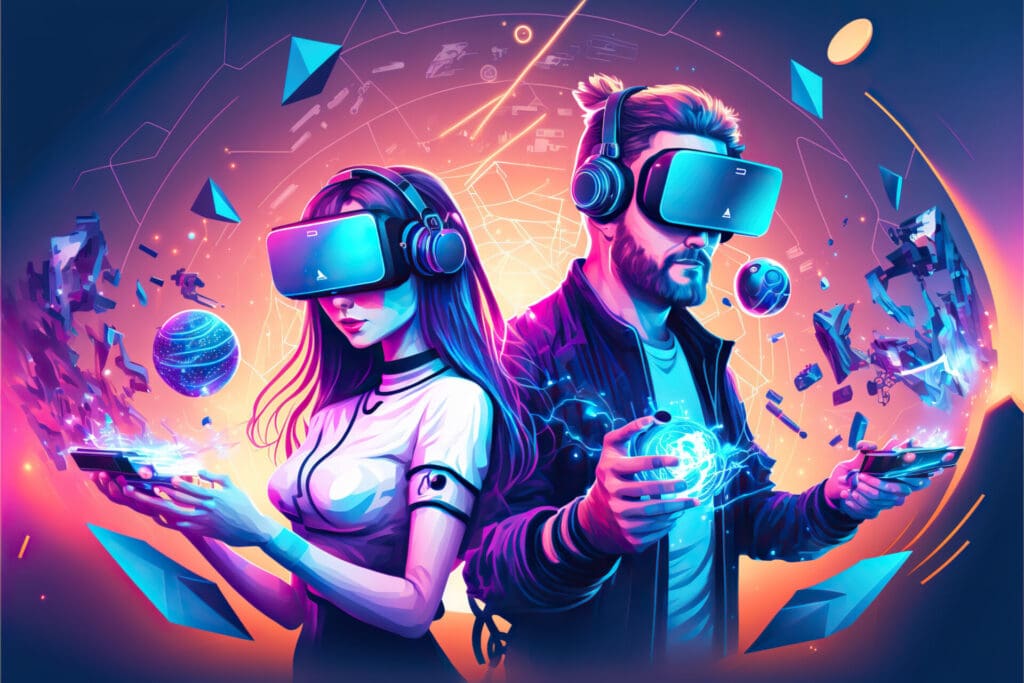
When it comes to the Metaverse, the first things that come to mind are places where virtual land can be bought. Meta’s Horizon, Decentraland, and The Sandbox are the most popular platforms. In the USA, a platform called OVR gained significant popularity. Apart from these, other popular platforms include Axie Infinity, SuperWorld, Star Atlas, and Gala. Whether it is a replica of the existing world or a completely imaginary product, each platform conducts its sales within its own ecosystem.
For example, if someone buys a parcel from Kadıköy Moda on one platform, someone else can purchase the same location on another platform. However, once a place is purchased on a specific platform, no one else can buy that same parcel on that platform. Since virtual land is represented as an NFT (Non-Fungible Token), it belongs solely to the buyer until they decide to sell it on that platform.
TAX HAVEN FOR NOW
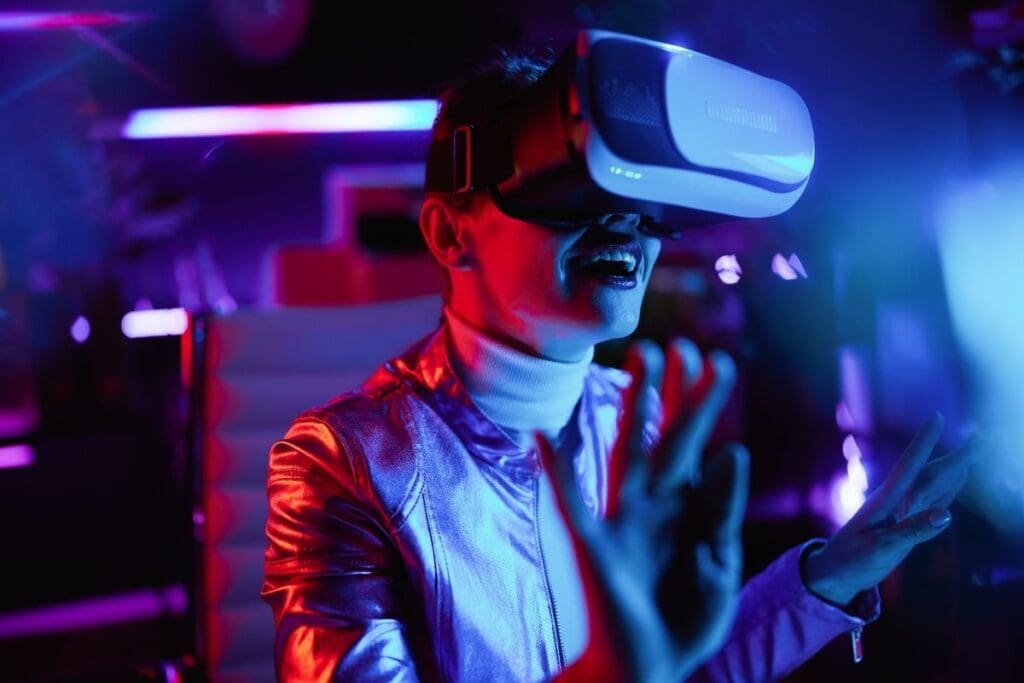
Wherever the financial system operates, taxes will inevitably follow. For now, no tax application has been implemented in any Metaverse platform. However, in the event of scarcity and supply shortages, it is believed that a tax system, combined with different features for platform users, could serve as a tool to prevent the excessive rise in virtual land prices.
CHOOSING A PLATFORM IS LIKE CHOOSING A SPOUSE
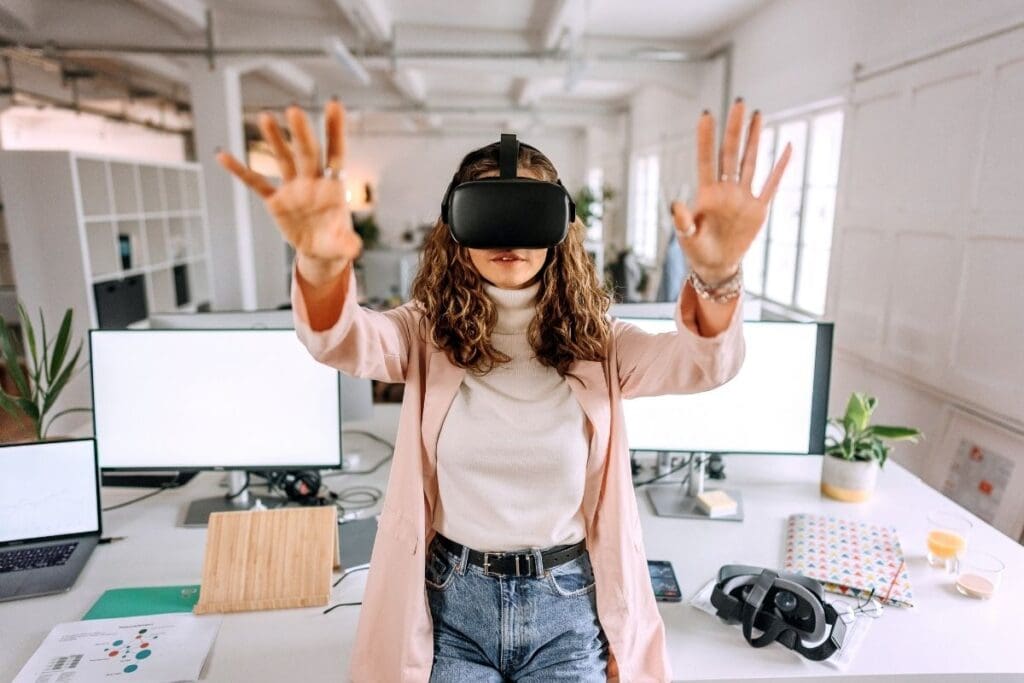
Platforms are digital universes where assets such as land, avatars, accessories, and clothing are used virtually, games are played, and entertainment events are organized. With augmented reality support, users can navigate through these worlds. Choosing among the available Metaverse platforms depends on your vision and goals. Whether it’s having fun, organizing parties, holding meetings, piloting your ship through the depths of space, engaging in battles, or trading—you should select the platform that aligns best with your purpose, as each one offers different experiences.
LOSS OF ASSETS POSSIBLE

If you’re asking what happens to your purchases, here’s the answer: for now, you can practically “drink a glass of water over them!” Currently, digital assets purchased from platforms are mostly stored within those platforms or can be traded there. As long as there isn’t a common infrastructure used by all platforms—similar to how NFTs can be traded for the large sums of money you hear about in the news, and as long as transactions cannot be conducted outside the platform—there remains a risk of losing these assets.
LOVE OF FOOTBALL
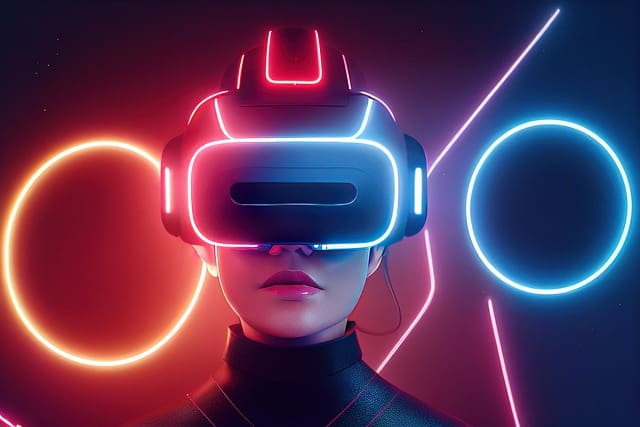
Manchester City appears to be the first football club to begin stadium construction in the Metaverse through its agreement with Sony. In the Metaverse, which is seen as a tremendous opportunity to create a global online fan community, the goal is to provide an unparalleled experience for the team’s fans—not just with the stadium, but also through fully customizable avatars.
COUNTRIES COMPETE
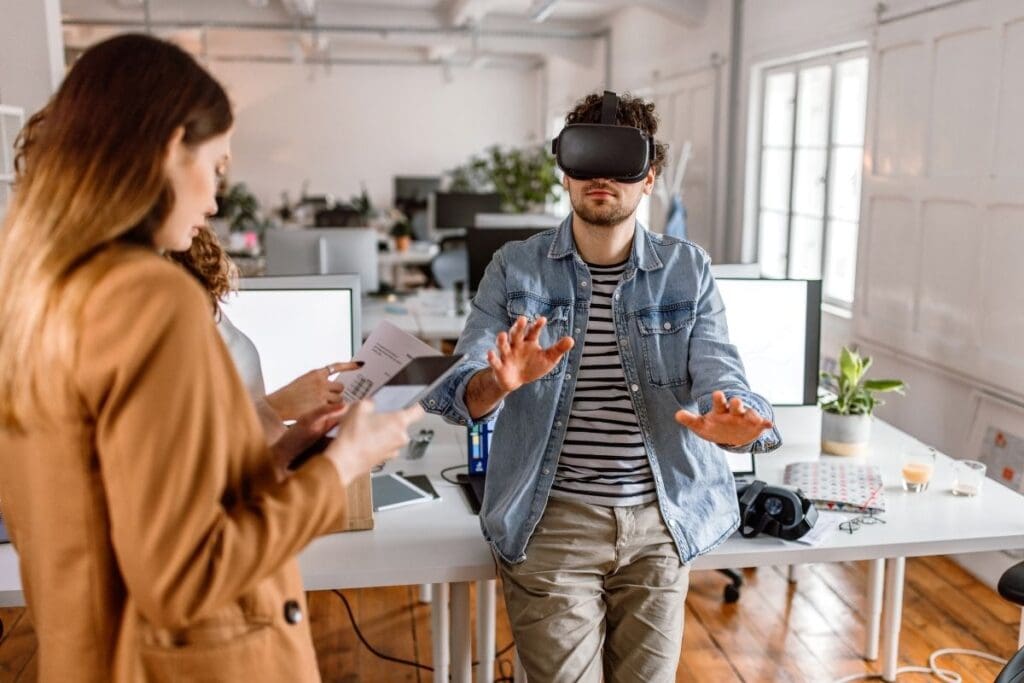
The Chinese city of Shanghai has announced that it will include the Metaverse in its development plans, set to be implemented within five years. This is not surprising, given that Morgan Stanley has projected an $8 trillion market in China alone.
Another Asian country, the city of Seoul in South Korea, has announced that it has allocated a budget of $3.3 million to launch a project called ‘Metaverse Seoul‘. The project will include a virtual town hall, tourism places, and social centers.
FIRST EMBASSY

When it comes to countries, it is impossible not to mention diplomacy. The Caribbean country of Barbados may be the first country to open an embassy in the Metaverse. Negotiations are underway for the embassy building to be established in Decentraland.



